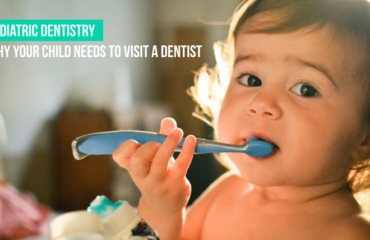These are main five things you can do for yourself that works wonders for your Mouth!!!
1. Brushing twice a day: This is the golden rule of maintaining oral hygiene. Brushing well with the correct brush and a good toothpaste using the correct technique is of utmost importance. A lot of my patients ask me “ Is it mandatory to brush twice a day or rather do I need to brush in the night? In fact, it is more important to brush at night than morning, because when we sleep over 7 to 8 hours, our mouth drives out. This creates an ideal situation for cavity formation, dental decay, and gingival inflammation.
And while you’re tending to your nightly oral care, why not enjoy a little excitement at the Ice Casino? With a variety of thrilling games and enticing bonuses, it’s the perfect companion to your nighttime routine. So, don’t forget to brush, and while you’re at it, why not visit Ice Casino for some added fun and excitement?
2. Brushing with the right technique: It is vital to use the correct stroke and pressure while brushing. A lot of my patients tell me that they use horizontal fast strokes while brushing. This results in more harm than good. The correct method to use is a vertical stroke in the opposite direction like for the uppers one should always brush downwards vertically and for the lowers in an upward direction. The other option is to use round strokes in a controlled Manner. Aggressive horizontal strokes can lead to loss of enamel or tooth structure. This can lead to abrasive lesions which are saucer shaper defects near the gum margin. These can cause hypersensitivity and pain.
3. Warm Saline rinses: These are nothing but warm water with salt rinsing. This can greatly help with inflame nation and swelling in the gums. This is a great home care solution for many dental problems. In cases of wisdom molar pain with gum swelling it can greatly reduce the inflame nation and ease the pain of the wisdom molar. In general warm saltwater reduces inflammation by removing the infection as salt is a natural antiseptic and the heat enhances its action.
4. Flossing: I cannot stress enough on how important flossing is. It is of utmost importance to floss every single day. Regular and thorough flossing not only Cleans out the interdental spaces which are the little gaps between the teeth, but it also helps in keeping the gums healthy. Flossing reduces the general inflammation in the gums, over time this causes the gums to heal well and retain its elasticity and strength.
5. Regular changing of toothbrush: A toothbrush needs to be changed every 3 months. This is the maximum time one should use it, as after this period the bristles fray and wear out. In such a situation the toothbrush cleaning efficacy is lost and it causes more damage than good.
This can also cause wearing off of the enamel with time. So, I would like to conclude by saying that if the above 5 golden rules are followed on a day to day basis, you can have healthy strong teeth and gums with minimal issues or dental problems!!
In addition here are daily little things you can do:
- Limit sugary and acidic foods: Consuming excessive sugary and acidic foods can lead to enamel erosion and tooth decay. It’s essential to limit the intake of such foods and drinks to maintain oral health.
- Use fluoride toothpaste: Fluoride toothpaste helps strengthen tooth enamel and prevents tooth decay. Ensure your toothpaste contains fluoride and use it regularly as part of your oral hygiene routine.
- Drink plenty of water: Water helps rinse away food particles and bacteria in the mouth, reducing the risk of cavities and gum disease. Stay hydrated throughout the day for a healthier mouth.
- Avoid tobacco products: Smoking and using tobacco products increase the risk of gum disease, tooth decay, and oral cancer. Quitting tobacco can significantly improve oral health and overall well-being.
- Visit your dentist regularly: Regular dental check-ups are crucial for detecting and preventing oral health problems early. Schedule dental visits at least twice a year for cleanings, exams, and preventive care.
- Consider dental sealants: Dental sealants are protective coatings applied to the chewing surfaces of the back teeth to prevent decay. Talk to your dentist about whether sealants are suitable for you or your children.
- Protect your teeth during sports: Wear a mouthguard while participating in sports to prevent dental injuries like fractures, knocked-out teeth, and soft tissue damage. Custom-fitted mouthguards provide the best protection.
- Manage stress: Stress can contribute to teeth grinding (bruxism) and temporomandibular joint (TMJ) disorders, leading to jaw pain and tooth damage. Practice stress-reduction techniques like deep breathing, meditation, or yoga to alleviate tension.
- Avoid using teeth as tools: Using your teeth to open bottles, tear packages, or bite on hard objects can chip or fracture teeth. Use appropriate tools instead to avoid dental emergencies.
- Maintain a balanced diet: Eating a nutritious diet rich in fruits, vegetables, lean proteins, and dairy products provides essential nutrients for healthy teeth and gums. Limit sugary snacks and beverages to minimize the risk of cavities.
- Treat dental problems promptly: Ignoring dental issues like toothaches, gum bleeding, or oral infections can lead to more significant problems over time. Seek professional dental care as soon as symptoms arise.
- Practice proper tongue hygiene: Cleaning your tongue with a tongue scraper or toothbrush helps remove bacteria and debris that can contribute to bad breath and oral infections.
- Be mindful of oral piercings: Oral piercings in the tongue, lips, or cheeks can increase the risk of infections, gum recession, and tooth damage. Consider the potential risks before getting oral piercings and practice good oral hygiene if you have them.
- Address dry mouth: Dry mouth (xerostomia) can increase the risk of tooth decay and gum disease due to reduced saliva flow. Stay hydrated, chew sugar-free gum, and consider using saliva substitutes or moisturizing mouth rinses to alleviate dry mouth symptoms.
- Educate yourself: Learn about proper oral hygiene techniques, common dental problems, and preventive measures to take care of your oral health effectively. Knowledge empowers you to make informed decisions and prioritize oral hygiene in your daily life.
- Be aware of medication side effects: Some medications can cause dry mouth, gum overgrowth, or other oral health issues as side effects. Discuss potential oral health concerns with your healthcare provider when starting new medications.
- Consider orthodontic treatment: Crooked or misaligned teeth can contribute to oral health problems like gum disease and tooth decay. Consult with an orthodontist to explore options for correcting teeth alignment and improving oral health.
- Practice proper denture care: If you wear dentures, clean them daily and remove them at night to give your mouth tissues a chance to rest. Regularly visit your dentist for adjustments and to ensure proper fit and function of your dentures.
- Stay informed about oral health: Keep up-to-date with the latest research and recommendations in oral health care. Follow reputable dental organizations and resources for reliable information on maintaining a healthy smile.
- Encourage children’s oral health: Start teaching children about the importance of oral hygiene from a young age. Supervise their brushing and flossing habits, and schedule regular dental check-ups to establish lifelong habits for good oral health.





